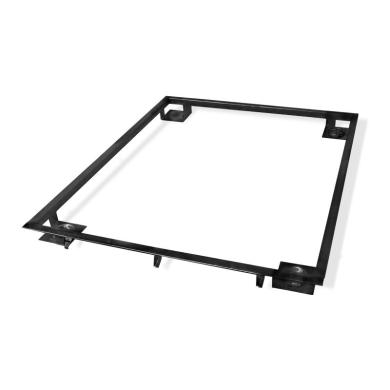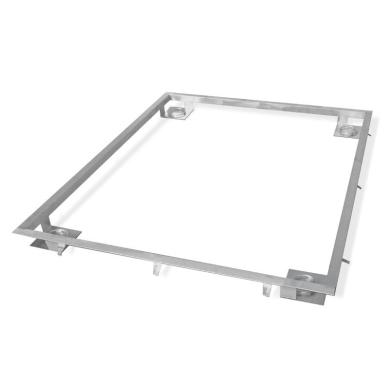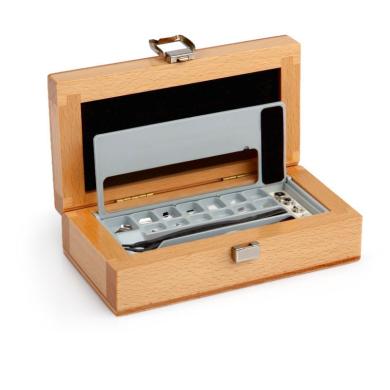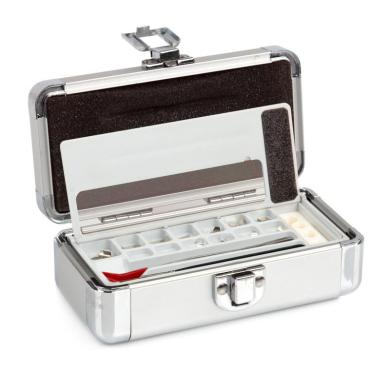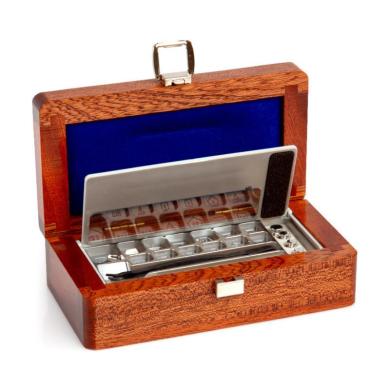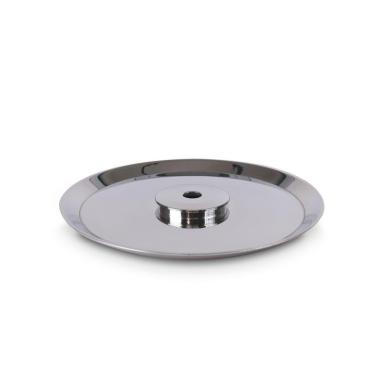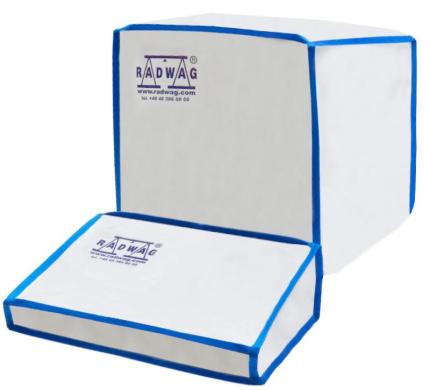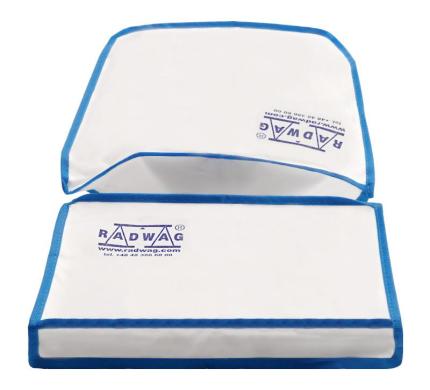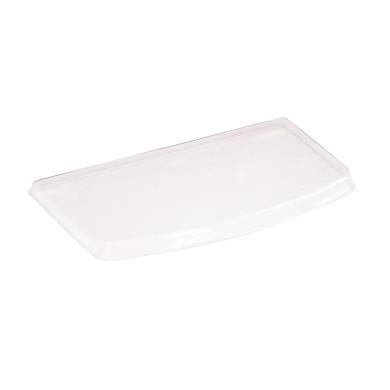Radwag Flat polygonal sheets, Set (1 mg - 500 mg), Plastic Box
Flat polygonal sheets - set (1 mg - 500 mg) Class M1 mass standards are versatile measuring tools ch (more)aracterized by their high precision and versatility in laboratory, industrial or commercial applications. Classified as M1 metrology class, they are valued for their versatility and accuracy in mass measurement. M1 Class Mass Standards – Key Features High-Level Precision - M1 class mass standards are designed to ensure precision in mass measurements. Permissible deviations from the actual mass are set with strict standards. Versatility of Applications - Characterized by versatility, M1-class standards are used in fields such as laboratories, industry, commerce and other areas requiring precise weight measurements. Measurement Stability - M1-class mass standards are stable over time, meaning that they maintain their measurement precision even despite prolonged use. This feature is especially important for tools that are used regularly. Operation in a Wariety of Ambient Conditions - M1 class mass standards are designed to cope with both laboratory, industrial and commercial conditions. The set includes: plastic box 12 mass standards 1 pair of tweezers 1 brush Material: nickel silver *The 1 mg, 2 mg and 5 mg mass standards are made of aluminum. Application 1. Analytical Laboratories In analytical laboratories where precise measurements are crucial, Class M1 mass standards are used to calibrate medium-precision balances. 2. Manufacturing Industry In the manufacturing industry, where product quality control is important, M1 class mass standards can be used to calibrate balances used in the manufacturing process. 3. Weighing Trade In the weighing trade, where measurement precision is required by law, M1 class mass standards can be used as a reference for calibrating commercial balances. 4. Testing Laboratories In research laboratories, Class M1 mass standards can be used to ensure precise weight measurements. Class M1 mass standards are versatile tools that are used in various areas of life. Their ability to adapt to different conditions makes this class of standards highly valued in the world of science, industry and commerce alike.
€172.00 ex VAT
Poland
mass standards
